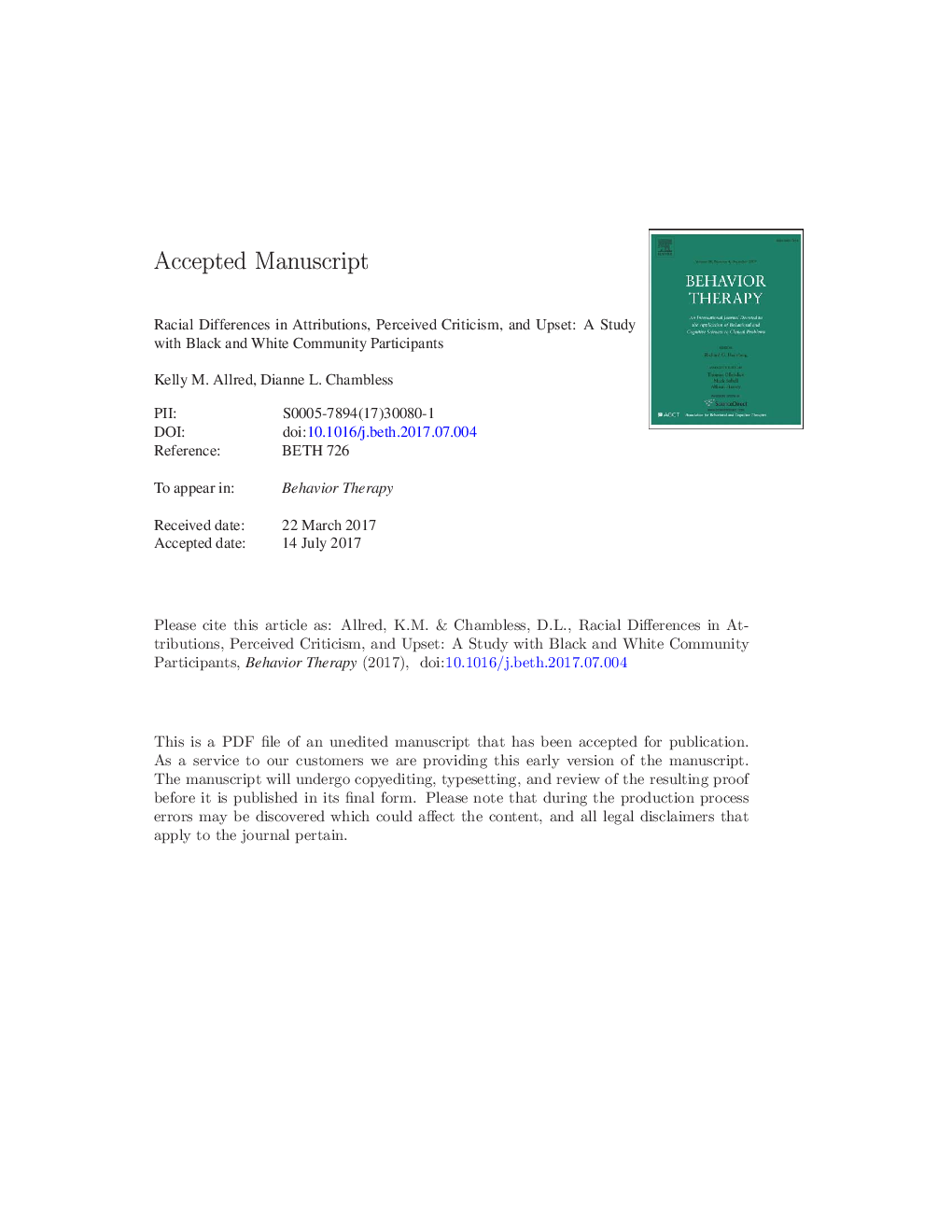| Article ID | Journal | Published Year | Pages | File Type |
|---|---|---|---|---|
| 7261668 | Behavior Therapy | 2018 | 44 Pages |
Abstract
The primary aims of the current investigation were (a) to examine the relationships among attributions, perceived constructive and destructive criticism, and upset due to criticism and (b) to explore racial differences in mean levels of attributions, perceived criticism, upset due to criticism, and warmth in a community sample of Blacks and Whites (N = 272). The Attributions of Criticism Scale (ACS) was used to measure participants' attributions regarding criticism from their relatives. No racial differences were found in mean levels of attributions or type of perceived criticism. However, Blacks were significantly less upset by perceived criticism from their relatives than Whites. When the relationships between attributions, perceived criticism, and upset were explored, results showed that positive attributions were associated with greater perceived constructive criticism and less upset due to criticism, whereas negative attributions were associated with greater perceived destructive criticism and more upset. Perceptions of relatives' warmth were also associated with greater perceived constructive criticism and less perceived destructive criticism, but warmth was only related to less upset for Blacks and not Whites. Findings suggest that attributions and warmth play an important role in the perception of criticism and the extent to which individuals become upset in response to criticism from loved ones. Results also point to potential racial differences in mean levels of these variables and the associations among them.
Related Topics
Health Sciences
Medicine and Dentistry
Psychiatry and Mental Health
Authors
Kelly M. Allred, Dianne L. Chambless,
